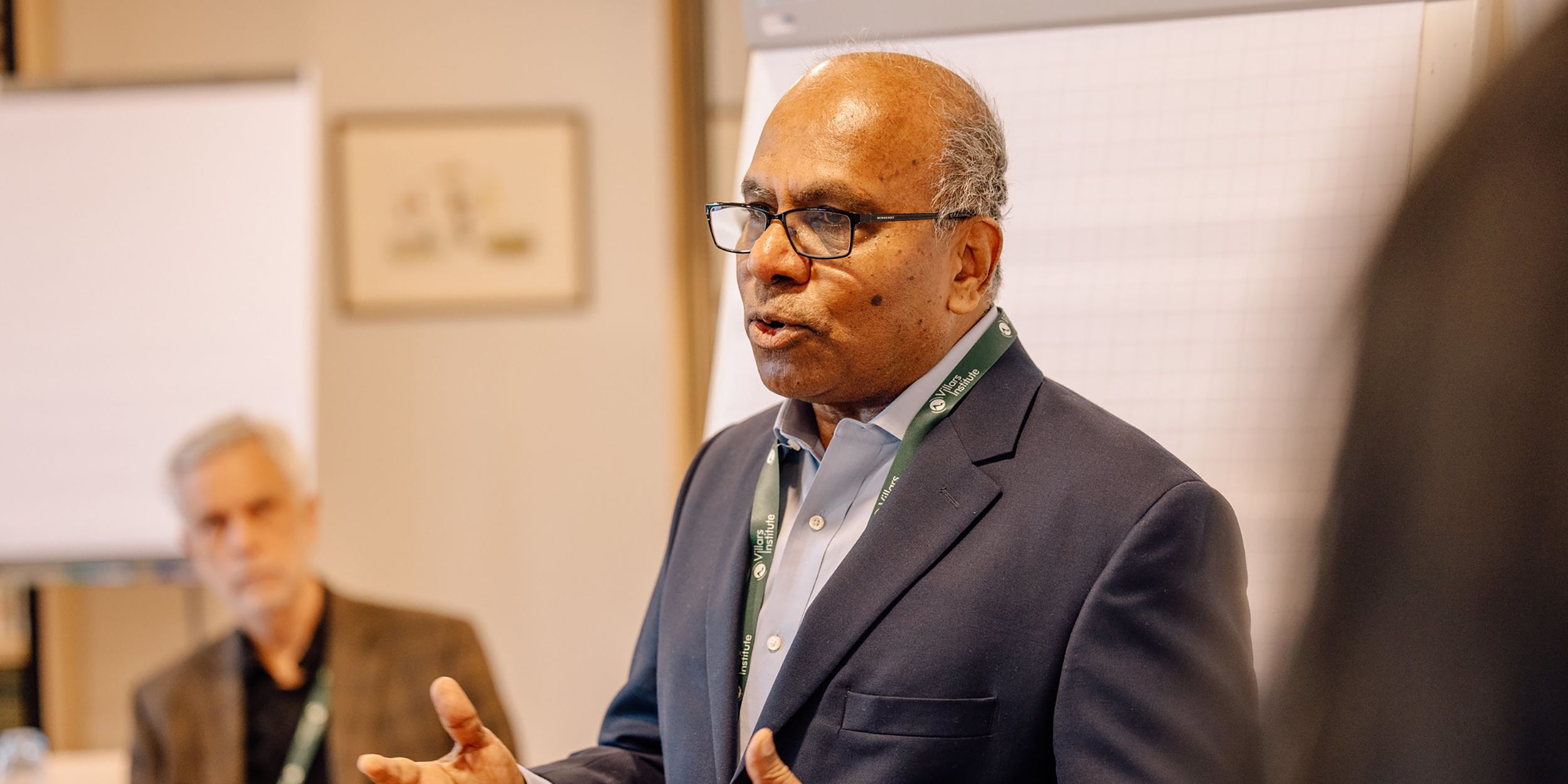The Ideas
The discussion started around the disparities in global R&D, highlighting that the majority of spending currently comes from a minority of countries, giving them control over the agenda. Innovations are a reflection of the research that goes into them. Therefore, it is important to ensure that those who require technological solutions not only have access to them but are also involved in their development. One of the barriers discussed was the fact that despite globalization, scientists are often isolated from each other and from the general public. To achieve a just transition, it is essential to provide a platform for talent from all around the world. Another barrier to equitable technological development is access to scientific research. One expert noted that 61% of climate literature is behind a paywall and only 1% of funded research is published. Science and Technology play a key role in the net-zero and nature-positive transition. Therefore, it is important to democratize science and remove barriers to access R&D.
The expert highlighted that scientific policy is often influenced by misinformation and herd mentality rather than actual scientific research, contributing to the current problems with scientific innovation and research. They also discussed the undeniable connection between the global research agenda and CEOs, policy makers, and the general public, which can be both a problem and an opportunity. They may influence the research undertaken, but through clear, trusted, and accessible science communication, research should also influence policy.
The experts drew parallels between the current climate crisis and the recent COVID-19 pandemic. They considered the rapid development of vaccines a success in scientific research and collaboration. However, they questioned why this achievement did not restore trust in the scientific community and why we are not responding to the climate crisis with the same urgency.
Additionally, they reflected on the role of AI in scientific innovation and research. During the discussion, it was mentioned that generative AI has the potential to coexist with and accelerate traditional scientific methods, as exemplified by gene editing. Additionally, AI could be used to address the issue of only publishing successful research, by allowing for the analysis and synthesis of thousands of 'failures' to learn from both successes and failures.
The Perspectives
Participants discussed the current exponential growth of AI development and funding, as well as the need for guardrails and regulatory processes. They discussed the value structures that underpin AI development and the potential biases that may be present in AI programs.
They also examined the flaws in the institution of scientific research, including the fact that university rankings are based on the number of publications, which incentivizes replication rather than collaboration. The group questioned how research can be valued differently to promote progress and innovation.
Another group of participants, which featured a member of parliament, focused on integration and inclusion. They discussed the separation between the scientific community and the government, and questioned whether scientists should also be involved in policymaking to create better-informed policies on issues such as climate change. As these participants were mainly from the Global South, they also emphasized the inequalities in research and development, partly caused by the debt crisis.
Finally, the experts reflected on the points made by the group. One of them referenced the famous Mike Tyson quote, “Everyone has a plan 'till they get punched in the mouth”, and said that soon we’re going to get punched in the face, while another asked, “When is the gun to our head?”, finishing by pointing out the urgency of our situation and the need for innovation, now.



